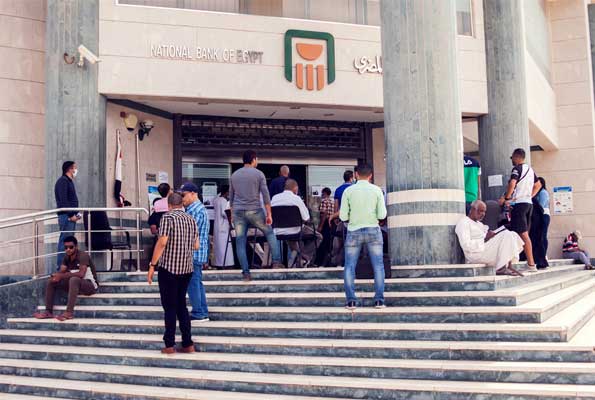The Central Bank of Egypt floated the pound in January 2023 to satisfy an International Monetary Fund (IMF) requirement for a USD 3 billion loan, the African nation’s fourth rescue since 2016. This followed three devaluations in 2022.
The latest action has caused prices to spike and put millions of low-income families through even more suffering due to a foreign currency shortage producing shortages of imported products.
The Egyptian pound’s value has decreased by 50% compared to the US dollar, from E£15.8 in March 2022 to E£30.5 in April 2023. In January 2023, the country’s annual urban inflation reached a five-year high of 25.8%. In addition, urban food price inflation also rose by 48% annually in January.
The Ukraine war, which prompted portfolio investors to withdraw USD 20 billion from the nation, contributed to a dollar shortage. The devaluation has somewhat alleviated this, but Egyptians from all socioeconomic classes now feel the effects of the rising cost of living problem.
This serves as a sad reminder of the 2016 devaluation that came along with a USD 12 billion IMF credit package for Egyptians. As a result, millions fell into poverty due to the 30% inflation rate. Seven years later, the World Bank estimates that 60% of Egypt’s 105 million people will fall into the poor/vulnerable category again.
The effects of the Ukraine war have revealed the country’s economic model’s vulnerability, analysts said. Foreign currency was easily accessible thanks to “hot money” inflows from investors drawn to short-term debt by one of the highest interest rates in the world.
However, withdrawing those funds has brought about a currency crisis in a nation heavily dependent on food and other imports.
Egypt’s private sector has stagnated as the government has invested billions in infrastructure projects, which are typically run by the military, even though changes included in the IMF deal, such as the reduction of energy subsidies, have received praise from other countries.
While some of these endeavours were necessary, others, like constructing a new capital outside of Cairo, were criticized as vanity projects. In addition, businesses have said that the military’s growing economic influence has scared away domestic and foreign money, which is fearful of competing with the nation’s most potent institution.
Cairo will implement reforms to increase engagement from the private sector under its most recent deal with the IMF. President Abdel Fattah al-Sisi’s state-ownership policy identifies the non-strategic industries the state has promised to let alone. The administration revealed plans to privatize dozens of state-owned businesses last week.
Additionally, the IMF has called for more consistent reporting of state-run and military organizations’ financial status and tax obligations.
President Sisi recently claimed that military-owned businesses paid their taxes and utility bills and did not unfairly compete with the private sector. The possibility of opening up all to private sector participation was another statement he made before.
While the impact of earlier pound declines continues to drive up non-food inflation, the short-term inflation outlook is for it to rise even more, peaking at about 26 to 27% on a year-on-year basis.
To lessen the inflation effects, the government has delayed power price increases and increased social safety programs to include approximately a quarter of the population.
Egypt is the 151st-freest economy in the 2023 Index, with an economic freedom score of 49.6. It scored a point more this year than in 2022. The Middle East/North Africa area’s 11th-placed nation, Egypt, scores lower than the average for the region and the world, which is a worry for President Sisi.
Strengthening the legal system, improving the protection of property rights, and more effectively combating corruption are only a few of the more extensive institutional reforms required to maintain long-term growth and stable economic development. The governmental solid hand in the economy has undermined policies that could have aided in opening markets.



